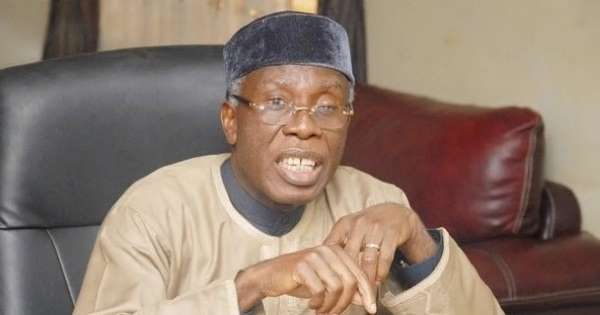Audi Ogbeh Speaks Out: Concerns Over Military Appointments In Nigerian Governance

Ex-Minister Audu Ogbeh Questions the Trend of Military Appointments in Governance
Former Minister of Agriculture, Audu Ogbeh, has stepped forward to voice his concerns about an unsettling trend in Nigerian governance. The issue at hand? The practice of replacing civilian governors with military appointees during states of emergency. This move, which has been implemented under President Bola Tinubu, echoes similar actions taken by former President Olusegun Obasanjo, sparking worries about a potential return to military-style governance. Ogbeh’s concerns highlight a growing unease about whether these actions undermine the capabilities of civilian leaders and what that means for the future of Nigerian democracy.
Ogbeh's Criticism: A Troubling Pattern
Ogbeh, during an appearance on Channels Television’s Politics Today, expressed deep concerns about the implications of this recurring pattern on Nigeria’s governance structure. He questioned whether the repeated reliance on military figures signals a nostalgia for military rule or a lack of confidence in the ability of civilians to govern effectively. “The only other thing that I’m asking is: Why is it that each time there is this suspension of a governor, a military person is put back in place?” Ogbeh queried, emphasizing the need to examine the underlying reasons for this trend. He continued, “Do we miss military rule, or are we suggesting that civilians are incapable of governing themselves? Obasanjo did it twice, in fact, thrice, and we have it again. What’s the logic?”
A Dangerous Signal: Undermining Civilian Governance
Ogbeh warned that these actions send a dangerous message to the Nigerian people, eroding trust in civilian governance. He stressed that while the president has the constitutional freedom to appoint whomever he deems fit, the choice of military figures sends a troubling signal. “Since the constitution doesn’t say you can only pick this or that person, the president is free to do so, but it’s also sending a funny signal that civilians can’t do the job themselves,” Ogbeh remarked. The former minister further urged elected leaders to act more responsibly, stating, “Elected individuals should behave themselves and not carry on as if it’s a holiday and that they can do as they wish because they are sending the wrong signal to society.”
Read also:Level Up Your Streaming A Guide To Building A Thriving Gaming Channel
Rivers State Emergency: A Case in Point
Ogbeh’s comments come in the wake of President Tinubu’s declaration of a state of emergency in Rivers State on March 18. Citing political instability and the vandalization of oil facilities, Tinubu suspended Governor Siminalayi Fubara, his deputy Ngozi Odu, and members of the state assembly. In their place, he appointed retired Vice-Admiral Ibok-Ete Ibas as the sole administrator of the state. The state of emergency declaration was subsequently ratified by the Senate and House of Representatives on March 20, despite significant opposition from various stakeholders, including the South-South Governors’ Forum, which condemned the decision.
The Presidency's Justification
The presidency defended the decision, arguing that the move was necessary to prevent further escalation of the crisis in Rivers. However, Ogbeh and others view the appointment of a military appointee as a troubling sign of undermining civilian leadership. This situation raises important questions about the balance between maintaining stability and respecting the principles of democratic governance. As Nigeria continues to navigate these complex issues, the voices of leaders like Ogbeh serve as a reminder of the importance of upholding the integrity of civilian rule.
Genevieve Nnaji Fights Back Against Age-Shaming Trolls
NYSC Director General Pledges Quality Healthcare For Corps Members
US Senator Breaks Senate Record With 25-Hour Speech Against Trump's Policies


